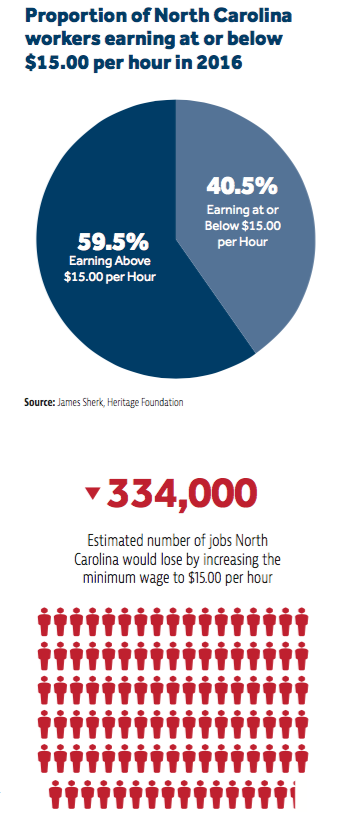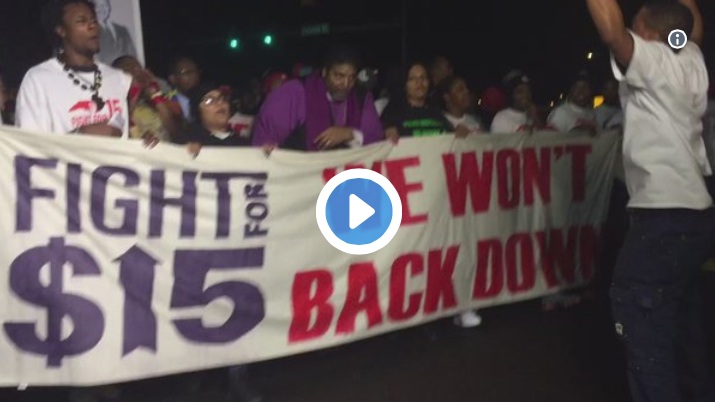 Yesterday I discussed a local protest with the self-defeating goal of “helping the poor” by jacking up the minimum wage all the way to $15 per hour. I pointed out that one of the issues about which economists are in greatest agreement upon is the negative effects of the raising the minimum wage. It’s clearly within the mainstream of economic thinking on the minimum wage.
Yesterday I discussed a local protest with the self-defeating goal of “helping the poor” by jacking up the minimum wage all the way to $15 per hour. I pointed out that one of the issues about which economists are in greatest agreement upon is the negative effects of the raising the minimum wage. It’s clearly within the mainstream of economic thinking on the minimum wage.
As economists know, a law that arbitrarily increases prices of a key input has inflationary effects. As always, the poor are hardest hit.
In the case of minimum wage increases, the hit is especially cruel. New research from the University of Zurich examining the prices of American groceries before and after minimum-wage increases and “finds that the poorest workers, those earning minimum wage, pay the most for the increase.”
Essentially what the research finds is that grocery price increases driven by wage increases — again, this is just in groceries alone — erase a good deal of the gain in wages. About fifteen percent of spending by the poor goes to groceries.
I note that those findings apply only to those working poor who still retain jobs at the higher minimum wage. Disemployment of the poorest and least skilled is a known effect of the minimum wage, however — and if it were more than doubled to $15/hr. as advocates demand, these negative unintended consequences would be significantly more painful.
So not only do minimum wage increases make it harder to employ the poorest and least skilled among us, it also makes everything more expensive around them.

Why in God’s name self-styled advocates for the poor demand minimum-wage increases is beyond me. Raising the minimum wage breaks the first rule of crafting policies to help the poor. My most charitable guess is they like men’s praise for their “compassion” more than they like policies that actually help the poor.
We must be wiser than that, and in so doing, show more actual compassion.


